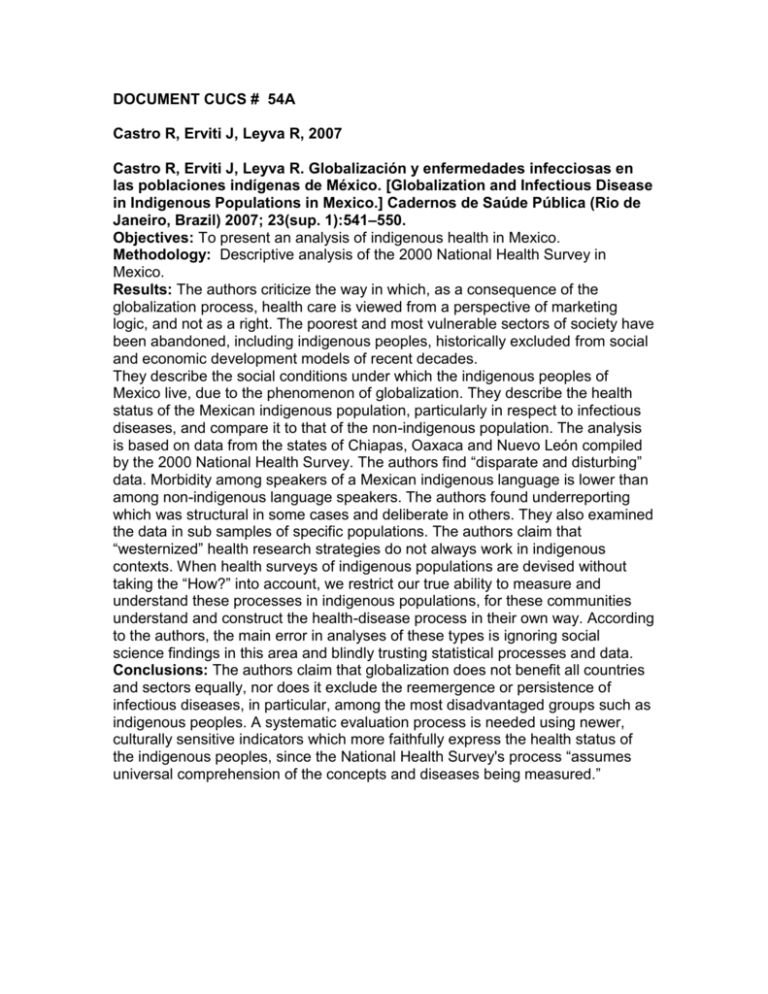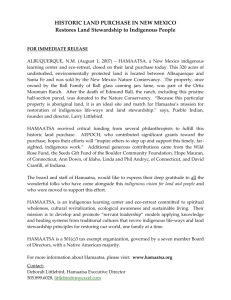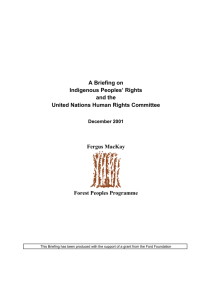Doc CUCS # 54A
advertisement

DOCUMENT CUCS # 54A Castro R, Erviti J, Leyva R, 2007 Castro R, Erviti J, Leyva R. Globalización y enfermedades infecciosas en las poblaciones indígenas de México. [Globalization and Infectious Disease in Indigenous Populations in Mexico.] Cadernos de Saúde Pública (Rio de Janeiro, Brazil) 2007; 23(sup. 1):541–550. Objectives: To present an analysis of indigenous health in Mexico. Methodology: Descriptive analysis of the 2000 National Health Survey in Mexico. Results: The authors criticize the way in which, as a consequence of the globalization process, health care is viewed from a perspective of marketing logic, and not as a right. The poorest and most vulnerable sectors of society have been abandoned, including indigenous peoples, historically excluded from social and economic development models of recent decades. They describe the social conditions under which the indigenous peoples of Mexico live, due to the phenomenon of globalization. They describe the health status of the Mexican indigenous population, particularly in respect to infectious diseases, and compare it to that of the non-indigenous population. The analysis is based on data from the states of Chiapas, Oaxaca and Nuevo León compiled by the 2000 National Health Survey. The authors find “disparate and disturbing” data. Morbidity among speakers of a Mexican indigenous language is lower than among non-indigenous language speakers. The authors found underreporting which was structural in some cases and deliberate in others. They also examined the data in sub samples of specific populations. The authors claim that “westernized” health research strategies do not always work in indigenous contexts. When health surveys of indigenous populations are devised without taking the “How?” into account, we restrict our true ability to measure and understand these processes in indigenous populations, for these communities understand and construct the health-disease process in their own way. According to the authors, the main error in analyses of these types is ignoring social science findings in this area and blindly trusting statistical processes and data. Conclusions: The authors claim that globalization does not benefit all countries and sectors equally, nor does it exclude the reemergence or persistence of infectious diseases, in particular, among the most disadvantaged groups such as indigenous peoples. A systematic evaluation process is needed using newer, culturally sensitive indicators which more faithfully express the health status of the indigenous peoples, since the National Health Survey's process “assumes universal comprehension of the concepts and diseases being measured.”








